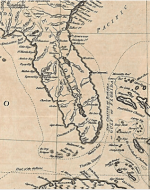49er12
Bronze Member
- Aug 22, 2013
- 1,238
- 1,630
- Detector(s) used
- Minelab xterra, Whites DFX, Notka Makro Simplex. Folks the price don’t mean everything, the question is are you willing to put in the time to learn the machine, experience will pay off I guarantee it.
- Primary Interest:
- All Treasure Hunting
Just asking Florida is the Mecca of treasure hunting, what about Georgia, South Carolina, North Carolina and upwards. Not well travels routes or enlighten those of us maybe it’s just the way they came, but I’m sure all the up to Delaware there’s something we missed, ok thanks for the input.








